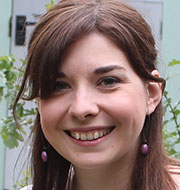 This week has highlighted for those in healthcare the intricacy of communicating risk to patients and their families. In an emotive blog relating to the case of Ashya King, Tessa Richards highlights her concerns regarding communication with families around complex treatment decisions, and has implored the medical professions to reflect on their ability to do this effectively. The author suggests doctors “struggle to find the time—or lack the skill or motivation—to listen to patients”. If you have an opinion or experience to share, we would welcome your rapid responses.
This week has highlighted for those in healthcare the intricacy of communicating risk to patients and their families. In an emotive blog relating to the case of Ashya King, Tessa Richards highlights her concerns regarding communication with families around complex treatment decisions, and has implored the medical professions to reflect on their ability to do this effectively. The author suggests doctors “struggle to find the time—or lack the skill or motivation—to listen to patients”. If you have an opinion or experience to share, we would welcome your rapid responses.
Accuracy in communication is raised in Jeffrey Aronson’s Filler piece discussing use and interpretation of the phrase “well tolerated.” Here the author calls for the phrase to be removed from the vocabulary of researchers and editors when presenting study results of drugs and medicinal products as he believes it can be misleading.
Daniel K Sokol, a barrister and medical ethicist, promotes the role of the clinical ethicist within the healthcare team. He makes reference to the Francis report, which put the spotlight on the dreadful situation for NHS patients in one Trust, but which has had a resonating impact in hospitals across the country. He feels with rising complaints to the GMC over 5 years we can learn from our colleagues in the USA who already employ clinical ethicists as part of the team to improve communication with patients.
The latest 10-Minute Consultation on breast lumps outlines the importance of history taking in management as well as the stages of examination and the referral process in accordance with NICE guidelines. Even once diagnosed the pathway of treatment may not be clear, as commented on in the recent Research News report discussing mortality after double mastectomy. Michael McCarthy reviews a recent study which shows rising rates of bilateral mastectomy in the United States, most notably among non-Hispanic, white women with higher socioeconomic status. This trend does not seem to be explained by the study’s findings that there was no improvement in overall 10 year mortality or breast cancer related mortality when comparing breast conserving surgery and radiotherapy with bilateral mastectomy. It perhaps raises the question as to how the effectiveness of invasive treatment is communicated to patients to balance with their own priorities and expectations.
One only has to consider the ongoing debate surrounding electronic cigarettes (e-cigarettes) to see how hard it is to give a clear and consistent message to the public. In his editorial, John Ashton reviews the stance of the World Health Organization (WHO) as being in direct opposition with the views of Public Health England and Action on Smoking and Health (ASH). The conflicting messages from those organisations only further highlight the difficulty for professionals and the public in assessing risk to health.
Similarly, how can campaigns expect to earn the respect of patients if there are reports of doctors themselves ignoring clinical evidence? Gareth Iacobucci discusses the impact of a UK survey, which reveals that over 10% of doctors questioned admitted to using sunbeds and 65% admitted they never check their own skin despite skin cancer admissions increasing by 41% in 5 years.
Although I have spent the majority of my week contemplating the complexities, disappointments, and failings of communication in the medical profession, I have also been reminded of the good work being done as the BMJ India award nominations are closed for consideration. The Indian healthcare service has been the subject of much scrutiny with exposure of corruption, but perhaps the inspirational hard work of the nominees described is testament to the desire of those that work in healthcare to do the very best for the people they look after. I hope next week I can reflect on that for longer.
I have read and understood BMJ policy on declaration of interests and declare the following interests: None.
Emma Parish is editorial registrar, The BMJ.